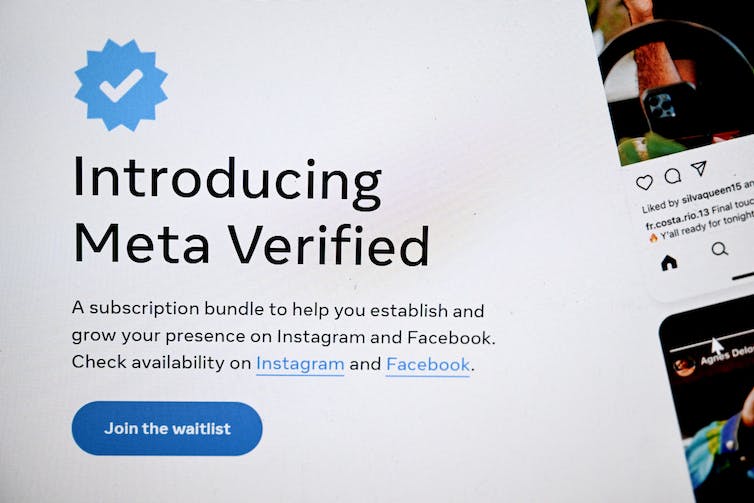Social media services have generally been free of charge for users, but now, with ad revenues slowing down, social media companies are looking for new revenue streams beyond targeted ads. Now, Twitter is charging for its blue check verification, and Meta and Twitter both charge for identity protection.
Users benefit from “free” services such as social media platforms. According to one study, in the U.S., Facebook users say they would have to be paid in the range of $40 to $50 to leave the social networking service for one month. If you value Facebook highly enough that you’d need to get paid to take a break, why not pay for these new services if you can afford them?
Meta plans to offer paid customer support and account monitoring on Facebook and Instagram to guard against impersonators for US$11.99 a month on the web and $14.99 a month on iOS devices. Twitter’s proposed changes make two-factor authentication via text messaging a premium feature for paid users. Twitter Blue costs $8 a month on Android devices and $11 a month on iOS devices.
As a researcher who studies social media and artificial intelligence, I see three problems with the rollout of these features.
The collective action problem
Information goods, such as those provided by social media platforms, are characterized by the problem of collective action, and information security is no exception. Collective action problems, which economists describe as network externalities, result when the actions of one participant in a market affect other participants’ outcomes.
Some people might pay Facebook for improved security, but overall, collective well-being depends on having a very large group of users investing in better security for all. Picture a medieval city under siege from an invader where each family would be responsible for a stretch of the wall. Collectively, the community is only as strong as the weakest link. Will Twitter and Meta still deliver the promised and paid-for results if not enough users sign up for these services?

Meta is beginning to roll out a paid identity protection service for Facebook and Instagram users.
William West/AFP via Getty Images
While large platforms such as Facebook and Twitter could benefit from lock in, meaning having users who are dependent on or at least heavily invested in them, it’s not clear how many users will pay for these features. This is an area where the platforms’ profit motive is in conflict with the overall goal of the platform, which is to have a large enough community that people will continue using the platform because all of their social or business connections are there.
Economics of information security
Charging for identity protection raises the question of how much each person values privacy or security online. Markets for privacy have posed a similar conundrum. For digital products in particular, consumers are not fully informed about how their data is…



